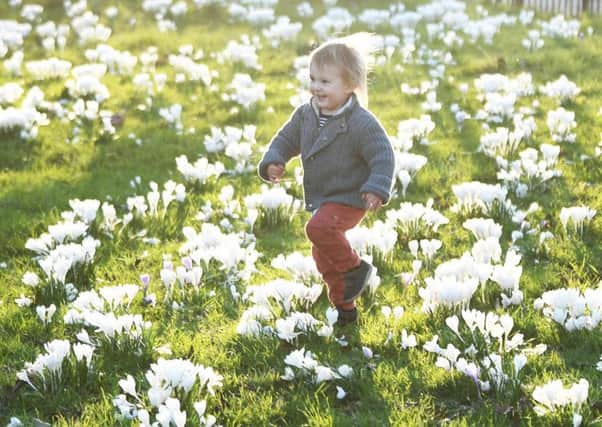Warning warm February weather could lead to ‘real crisis’ if temperatures drop


As the UK experienced its warmest winter day since records began for the second day in a row yesterday, the RSPB said migrant swallows and house martins have even been spotted arriving in Britain more than a month early.
Conservationists are warning the early start to spring, which they say could be linked to climate change, could lead to a “real crisis” for nature if the weather reverts to colder conditions, such as those seen in March last year.
Advertisement
Hide AdAdvertisement
Hide AdThe RSPB’s wildlife team has been getting calls from people reporting early nesting attempts and even ducklings being spotted across the country.
There are also reports of hibernating hedgehogs and some reptiles waking up earlier than usual and butterflies emerging prompted by the warm weather.
Birds are travelling ahead of the “Saharan plume” of warm air which is bringing the mild temperatures to the UK, with reports of swallows and house martins in Cornwall, Devon and South Wales weeks early, the RSPB said.
Martin Harper, the charity’s director of global conservation, said: “While the warm weather, bright sunshine and abundant sights and sounds of nature undoubtedly make us all feel better, they should also ring alarm bells.
“The early signs of spring are likely down to climate change, which is bad news for us all.
“As we expect the weather to return to temperatures more traditionally associated with this time of year – as they are forecast to – then there could be a real crisis for our birds, insects and other wildlife.”
The Woodland Trust’s Nature’s Calendar scheme, which asks the public to track signs of the seasons, has been receiving unusually early records of spring this winter.
Mild weather has led to records in January of red admiral, small tortoiseshell and peacock butterflies and queen wasps, which are usually seen in mid to late February or early March.
Advertisement
Hide AdAdvertisement
Hide AdTrees including field maples and European larches have been bursting into bud early and blue tits have been spotted making nesting attempts as early as Boxing Day.
Yesterday temperatures hit 21.2C (69.4F) in Kew Gardens, London, the Met Office said.
Parts of Britain were hotter than a series of popular holiday destinations, beating Malibu, Athens and Barcelona.
The warm weather is in stark contrast to this time last year, when the UK was swept by the “Beast from the East” which brought heavy snow showers and lows of minus 5C (23F), leading to travel delays and power cuts in what were the lowest temperatures in the week leading up to 1 March since 1986.